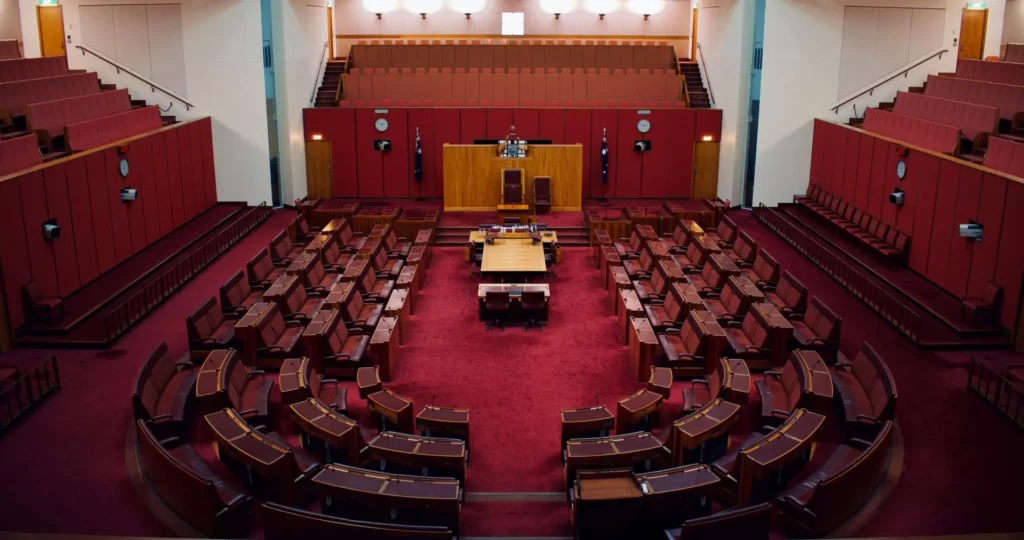The Great Australia Party (GAP) believes that our primary industries are a national asset and critical to our security. GAP will support continued growth in our primary industries, encouraging environment-friendly economical sustainable production and ethical resource use. Confident viable rural communities, safe food, and protection against imported pests and diseases, innovation in science and technology and a sound return on investment for Australia.
GAP will protect our primary industries from deregulation, native title, globalism and treaties that threaten competitiveness. Energy and water charges and other costs of production will be reduced, new technologies will be used to preserve foods, control insect pests and ensure water supplies.
The Commonwealth Government in the pursuit of globalism have destroyed our rural industries to the extent that we now borrow money to import food we once produced here. GAP is the only party to represent the farmers and we will re-introduce compulsory arbitration between the millers and growers, in order to negotiate workable contracts.
GAP will establish marketing boards to ensure and safeguard fair prices and treatment for producers, manufacturers and retailers, on rural commodities. Pricing will be investigated and regulated from the farm gate to the consumer to restore orderly marketing and fair prices. Farmer controlled single desk marketing will be re-established on pre-deregulation modelling, to ensure orderly and efficient marketing, storage and handling of primary products. Importation of food products to be restricted to protect local industry, import quotas given only for products not produced here or in insufficient quantities, with strict bio-security. Where possible, aid to other countries in need will be provided, utilising the assistance of trustworthy charitable organisations for distribution, using excess Australian produce and food products, avoiding the opportunities for corruption and waste when aid is delivered in monetary form.
GAP will stand behind rural industry and grant immediate relief to protect any area that is facing hardship or pressure from end user customers or natural disasters. e.g. dairy, fresh produce and the export industry.
GAP will implement a viable floor price for farm produce and will abolish unnecessary levies to help maintain viability at the farm gate.
GAP will support investment in native herbs and bush tucker to promote the use and understanding of indigenous products and to better value and showcase our indigenous heritage and culture.
GAP believes value adding to rural produce to be a priority. Processing and manufacturing plants will be supported and established in rural and regional areas, e.g., wheat and wool producing regions to add value to the products within those regions. In particular, flour mills and food processing factories, cotton mills, wool scours and woollen mills. Canneries, juicing and dehydrating facilities established to better utilize excess production in fruit and vegetable producing regions. This will reduce the dependence on import of food products and reduce freight charges, whilst value adding, also a bonus to the environment. Products excess to national requirements will be exported under realistic trade agreements or supplied in the form of aid to countries in need, providing real relief on the ground for those facing the devastation of food shortages.
GAP supports Australian farmers, in some cases tracing their ancestry back to our early settlers. Australian producers have worked hard over generations to establish and develop their properties, improving farming practices and efficiencies. Despite the vagaries of climate and poor government policy, they have become the most efficient producers in the world and have established strong links with the land they live and work on. Unfortunately, previous governments have subverted our constitution, by signing foreign treaties and trade agreements that have pitted our producers against the subsidised product of their competitors in other nations. This has threatened and seriously harmed our primary producers and rural communities, including the sugar cane, fruit and vegetable, dairy and meat production, cotton, wool and wheat sectors, which earn billions in export earnings annually and leaves our domestic market, worth further billions to our economy and priceless to national security, at the mercy of subsidised imports. GAP will withdraw from these harmful treaties and return to those trading partners that more closely align with our own farming practices.
GAPs goal is to assist our forestry industry to grow, improve and capitalise on new opportunities while protecting the environment, managing hazard risk and contributing to the prosperity and quality of life in rural and regional Australia. While forests will continue to provide sustainably produced wood, we will continue to reduce pollution, control salinity and improve conservation through the use of best practice farming and forestry management.
GAP supports timber production and harvesting in state forests, providing it is conducted in an efficient and sustainable basis and that effective management practices are in place to minimise environmental damage.
GAP will promote and elevate kangaroo and crocodile meat consumption through both domestic and export trade, highlighting the health and environmental benefits of management and production, i.e., kangaroos are more suited to large areas of Australia, particularly the drier more fragile environments, than introduced, hooved livestock. Crocodiles are currently in plaque proportions across northern Australia, having been unnecessarily on a program of egg harvest and release of viable crocodiles into creeks and streams, previously uninhabited by crocodiles. These pre-historic animals are now placing at risk, other vulnerable Australian species, as they have no predator other than man to manage their proliferation. Profitable, commercial breeding and management of kangaroos and crocodiles will be the surest guarantee of the long-term survival and optimal health of these iconic, native animals and of the other species in our environment.
Upon investigation of the live exports of sheep, cattle etc., GAP now questions the management, ethics, practicality and cost of the whole practice to producers and on the welfare of the animals being shipped. A recent report estimates the total cost of the live export trade to Australia could be billions in lost GDP and tens of thousands of jobs. GAP will continue to support any live export trade with high quality standards being maintained, as some countries don’t have the infrastructure to safely store packaged meat.
GAP opposes any unnecessary cruelty in trade or slaughter of animals, including those which are instituted to satisfy cultures that do not adopt world’s best practice or are inhumane procedures. GAP will investigate and re-evaluate the export of purebred breeding stock and genetic material with a view to providing regulated and ethical guidelines for the practice. GAP will act to protect our nation’s valuable breeding stock in times of natural disaster or economic catastrophe. Our policy is to value add all local raw product, where possible, thus creating Australian jobs and income, instead of compounding trading losses.
GAP will re-introduce effective and stringent quarantine restrictions, inspection and treatment procedures to prevent the import of pests, diseases and noxious weeds. GAP will work to re-introduce sufficient quarantine and border control inspectors, so as to ensure that this nation and its producers are better protected from potentially harmful imports or sabotage.
GAP supports the return to the regulated farm gate price of milk and other primary products, where necessary, for retention of reasonable viability and protecting reasonable market power for producers.
GAP will work to support guidelines for producer organisations that are voluntary and establish conduct and advocacy that is truly representative of the interests of all their producers, not merely tools of government or political parties, seeking to promote government policy that is outside the interests of the representative group of producers. GAP will work to ensure that producer groups MUST represent the interest of Australian producer members, without influence from membership of foreign corporations or governments overwhelming the interests of local producers.
GAP will support truth in labelling on all food products, with country of origin to be listed, along with local and imported content, including “country of origin”. 100% Australian produced product will be promoted and used, where possible, at parliament house events.
GAP will protect the future of Australian sugar cane farmers (Sugar Industry) by returning the embargo on all imported sugar and sugar products, and a domestic price for all Australian and New Zealand sugar to be established, with resulting remunerations to be spread across the industry at a rate of one third to millers and two thirds to growers. GAP will work to ensure that local producers and millers are paid a realistic price for their product at farm gate, in line with that of other competitor sugar producing countries, not paid at a fictitious world sugar price on the sugar content alone, while competitor nations, including the USA and China, receive heavily subsidised prices as well as large subsidies on input costs, like fertiliser, cheap energy and free water. GAP will support growers being paid for or sharing in, the full value of the sugar cane they produce, not simply for one by-product, the sugar. Excise on by-products from Australian sugar will be removed. GAP will support value adding for the numerous health, cosmetic, feedstock, energy and construction by products which makes sugar cane a highly valuable and efficient renewable resource.
GAP supports Australian rural producers, who have developed properties, contributed to the local, regional, state and national economy and welfare of Australian citizens, improved and developed efficient farming practices and made Australia’s rural industries amongst the most efficient and sustainable producers in the world. GAP will encourage them to continue to improve these sustainable production levels and will oppose United Nations (UN) treaties aimed at destroying them and this nation’s food security and the national economy, i.e., Agenda 21 and 2030.

